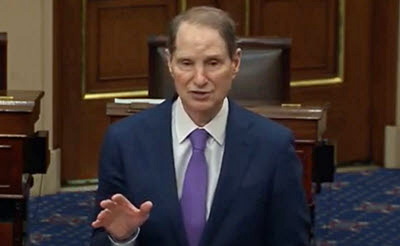
The Roundtable and 12 other national real estate organizations wrote to congressional tax writers on Dec. 8 in strong support of the Workforce Housing Tax Credit (WHTC) Act (S. 3436), which would create a new tax incentive aimed at increasing the supply of moderate-income rental housing. The Senate’s top tax writer, Finance Committee Chair Ron Wyden (D-OR), above, said this week that there is a “real window of opportunity” to pass bipartisan housing legislation in the coming months that could be folded into a possible 2024 tax package. (WHTC bill summary, Dec. 7 | Coalition letter, Dec. 8 | Wyden’s Senate floor remarks, Dec. 12 | Tax Notes, Dec. 13)
Affordable Housing Tax Credits
WHTC & LIHTC

Rep. Gomez told Tax Notes this week that House tax writers hope to include the rent relief bill, along with Gomez’ Revitalizing Downtowns Act (H.R. 419) in bipartisan discussions about a potential tax package. H.R. 419 would provide an investment tax credit for 20 percent of the cost of converting office buildings to other uses. (Rep. Gomez news releases, July 28 and Dec. 12 | news release, Dec. 12 | Roundtable Weekly, Aug. 11)
# # #

Roundtable Chairman John Fish (Chairman & CEO, Suffolk), above, was quoted in media articles this week raising concerns about certain aspects of a new Florida law that would limit and regulate the sale and purchase of certain Florida real property by “foreign principals” from “foreign countries of concern.”
Foreign Investment in Florida Property
Need for Clarifications

Florida Gov. Ron DeSantis has launched the SecureFlorida Portal, where foreign principals from foreign countries of concern like China must register property.
# # #

A bill to increase the limit on the amount of assets a REIT can own through a fully taxable subsidiary is gaining momentum in the House. The bipartisan measure has picked up 18 additional cosponsors from the tax-writing Ways and Means Committee since its introduction in late August by Representatives Mike Kelly (R-PA) and Brian Higgins (D-NY). (Legislative text of H.R. 5275)
Taxable REIT Subsidiaries
The Roundtable and its Tax Policy Advisory Committee (TPAC) will continue working closely with Nareit and other industry partners in support of H.R. 5275 as deliberations continue on tax legislation.
# # #